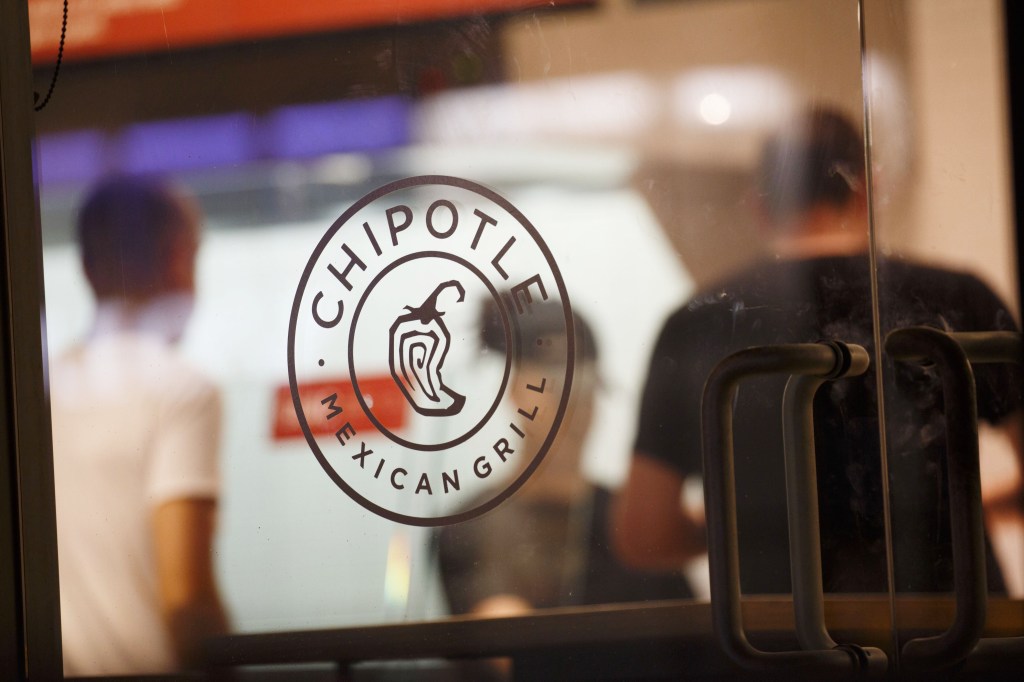In a bid to position its brand as more tech-forward — and, in the process, foster new culinary innovations — Chipotle today announced the launch of Cultivate Next, a venture fund run by Curt Garner, the restaurant chain’s chief technology officer. Chipotle says that Cultivate Next, which will be financed solely by Chipotle to start, will offer a tranche of $50 million and focus on tech companies in the “seed to Series B” stages.
“We are looking to make investments that will increase guest access to Chipotle as well as elevate the human experience for our teams,” Garner told TechCrunch in an email interview. “[Cultivate Next will give] early stage ventures great visibility and experience in the restaurant category to work with alongside a large scale operation with domestic and international growth ahead.”
Cultivate Next’s debut comes as quick-service restaurants, particularly large chains, increase their investments in technologies that promise to streamline operations while bolstering revenue. Events over the past several years, including the pandemic (and subsequent labor shortages), have forced operators to explore technological solutions to longstanding industry challenges, whether contactless point-of-sales systems or — in Chipotle’s case — chip-frying robots.
A 2020 survey from Technomic notes that 68% of restaurant operators believe that their technology spend will either somewhat or significantly increase over the next few years. In a separate Panasonic poll of decision makers at food service providers and retailers, 71% of respondents rated “digital transformation” as more important than any other factor for their organization’s agility.
Garner says that part of the goal with Cultivate Next is to meet restaurant customer preferences that have changed significantly during the pandemic. In a 2021 Deloitte survey of restaurant guests, 57% said that they prefer to use an app for takeout while 64% expressed a liking for digital QR codes on-site. Moreover, more than half of respondents said they’d be willing to order from a partially or fully automated kitchen; would opt for automated voice systems at drive-throughs; and would consider driverless or drone delivery.
“Chipotle has aggressive goals of achieving 7,000 restaurants, along with a healthy balance sheet, which enables us to invest in forward-thinking ventures that can help accelerate these growth plans,” Garner said. “It could be anything from innovations in farming and supply chain, to advanced robotics, and beyond.”
Garner further clarified that Chipotle will retain the option to accept outside capital for Cultivate Next and remains open to growing the fund down the line. It’s unclear what the first cohort might look like, but the general idea is to support startups developing services that improve employee upskilling and retention and contribute to a “more positive overall experience” for restaurant guests, Garner said.
“We’re committed to continuously improving the working environment for our team members [and guests] by easing pain points or areas of friction that they’ve identified,” he added.
Beyond Cultivate Next, Chipotle in 2019 launched an accelerator for food startups, the Chipotle Aluminaries Project, with a cohort of eight companies focused on sustainable food and development. (Unlike Cultivate Next, startups in the Chipotle Aluminaries Project, which is run by the Chipotle Cultivate Foundation and the nonprofit Uncharted, don’t receive direct investments.) The restaurant chain also recently backed Nuro, a self-driving delivery service with an extensive partner network.
But not to be outdone, Chipotle’s competitors have accelerated their tech startup investing. Venture funds alone put more than $39.3 billion in food tech companies and $2.3 billion in restaurant tech in 2021, according to PitchBook and Crunchbase data.
Yum, the parent of Taco Bell, Pizza Hut and KFC, has invested millions in Grubhub and in 2021 acquired Tictuk Technologies and Kvantum, a pair of digital ordering and marketing companies. (That came fast on the heels of Pizza Hut’s purchase of online ordering platform QuikOrder in 2017.) Meanwhile, in 2019, McDonald’s bought — and later sold — Dynamic Yield, which uses AI to recommend certain menu items based on factors like the weather and time of day. Elsewhere, a year after Starbucks purchased AI-driven customer relationship management platform Brightbloom in 2019, Dunkin’ and Arby’s owner Inspire Brands snatched up ItsaCheckmate, a product that funnels orders from third-party delivery services into restaurants’ point-of-sales systems.
One challenge for Chipotle and rivals will be ensuring that tech innovation doesn’t come at the expense of human opportunity. For example, a 2020 report from Aaron Allen & Associates predicts that 80% of restaurant jobs could eventually be taken over by robots, which might replace as many as 57% of fast food and counter workers and 51% of servers. Startups like Momentum Machines urge those at risk of losing their jobs to learn to design more automated systems, but it isn’t that easy. Upward mobility eludes most in the industry — 90% of the fast food workforce is made up of front-line workers like line cooks and cashiers and less than 1% owns a franchise, the National Employment Law Project reports.






























Comment